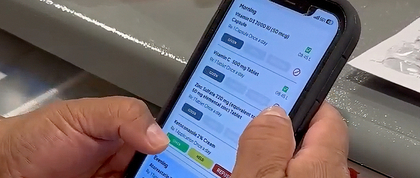
A Perspective Piece by Master's in Public Health Student, Dr. Rimsha Minhaz
My passion for public health took root back in the rural villages of South India, where I had volunteered to provide dental care to children in government schools. I also listened to the stories of young pregnant women who rarely saw a healthcare provider, counseling them as best I could. These experiences were an eye-opener, and a welcome escape from the confines of a traditional dental academic setting, which can often block a deep understanding of equity and advocacy in health care. But as I worked among these marginalized communities I found myself asking more questions, sometimes feeling overwhelmed by the complexities of their access to health care.
With much reflection after graduation, last year I came to New York City to pursue my Master of Public Health at NYU. It was a choice I felt in my bones, true to my belief in doing things that feel right in the moment, to avoid regrets. But I could not have known how my study of public health would be brought to life by my work with Dr. Wilson Wang, a GPH faculty member who became my mentor and is now also my boss at WD-Home, a cloud-based app that improves the care of older persons in community settings. As a student I’m learning the ropes of health entrepreneurship, using new technology to improve care—and actively promoting health equity.
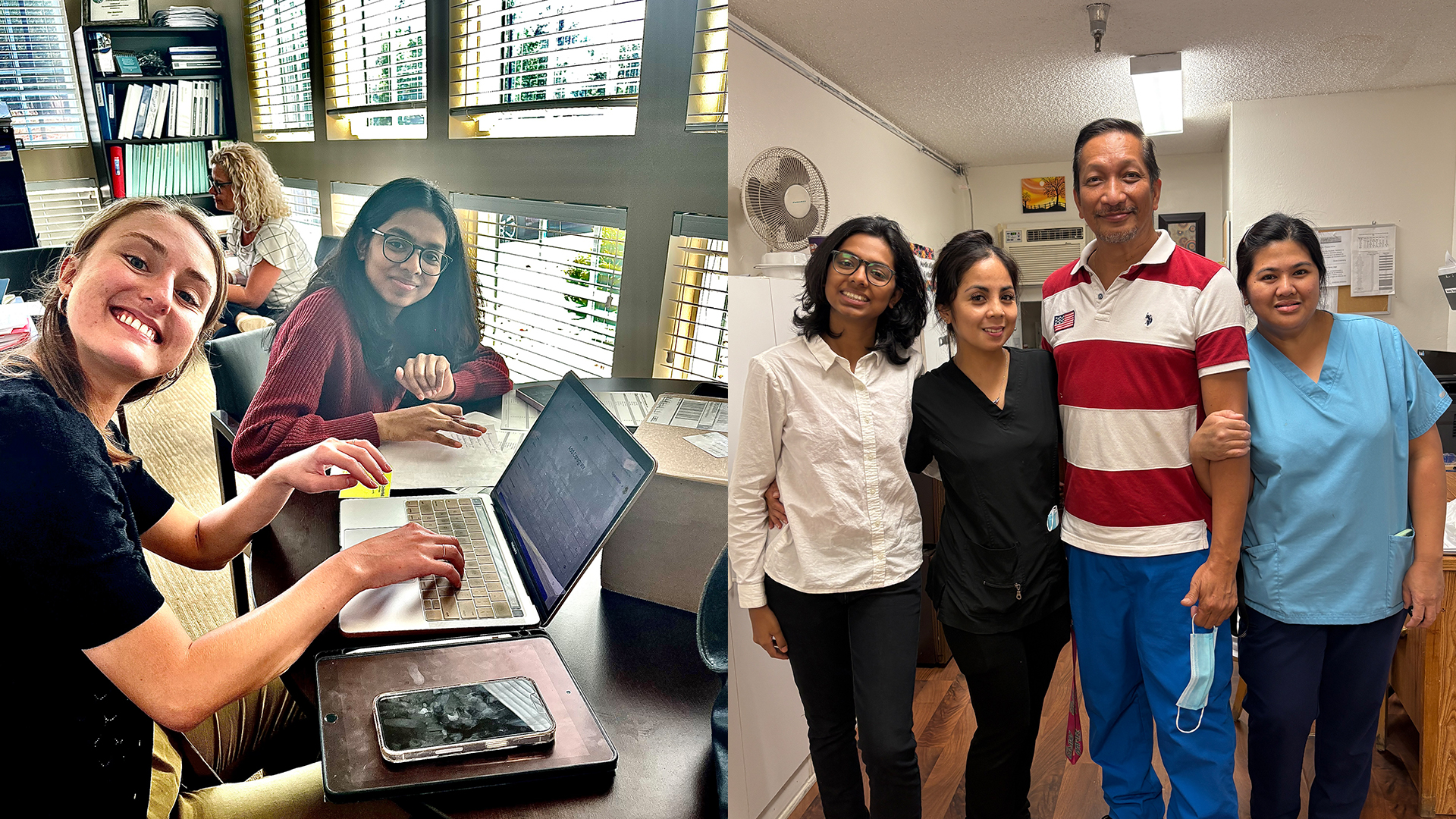
I’ll never forget an NYU GPH orientation webinar at a very early hour that fueled my excitement. During the session Dr. Wilson shared a story that truly struck me: He had been sent to Liberia during the Ebola outbreak to develop treatment units and train local healthcare teams. He described an eerie moment in a light chamber, awaiting results that would determine who was carrying the virus. That level of dedication seemed to require unreal drive, and I was blown away by his story! Outreach on that level was beyond anything I’d experienced, and I wanted to learn from someone like Dr. Wilson.
He was my professor for Data-Driven Decision Making, which was great training for my role as project manager at WD-Home. I’m working alongside Dr. Wang to develop and implement two products: a charting tool for medical technicians to chart more efficiently and accurately across shifts, and a medication management system that can replace paper records. We piloted both in assisted living facilities in Los Angeles and North Carolina, and found it not only saves time but also uncovers errors in prescriptions that our tool will report to insurance companies using A.I.-driven algorithms.
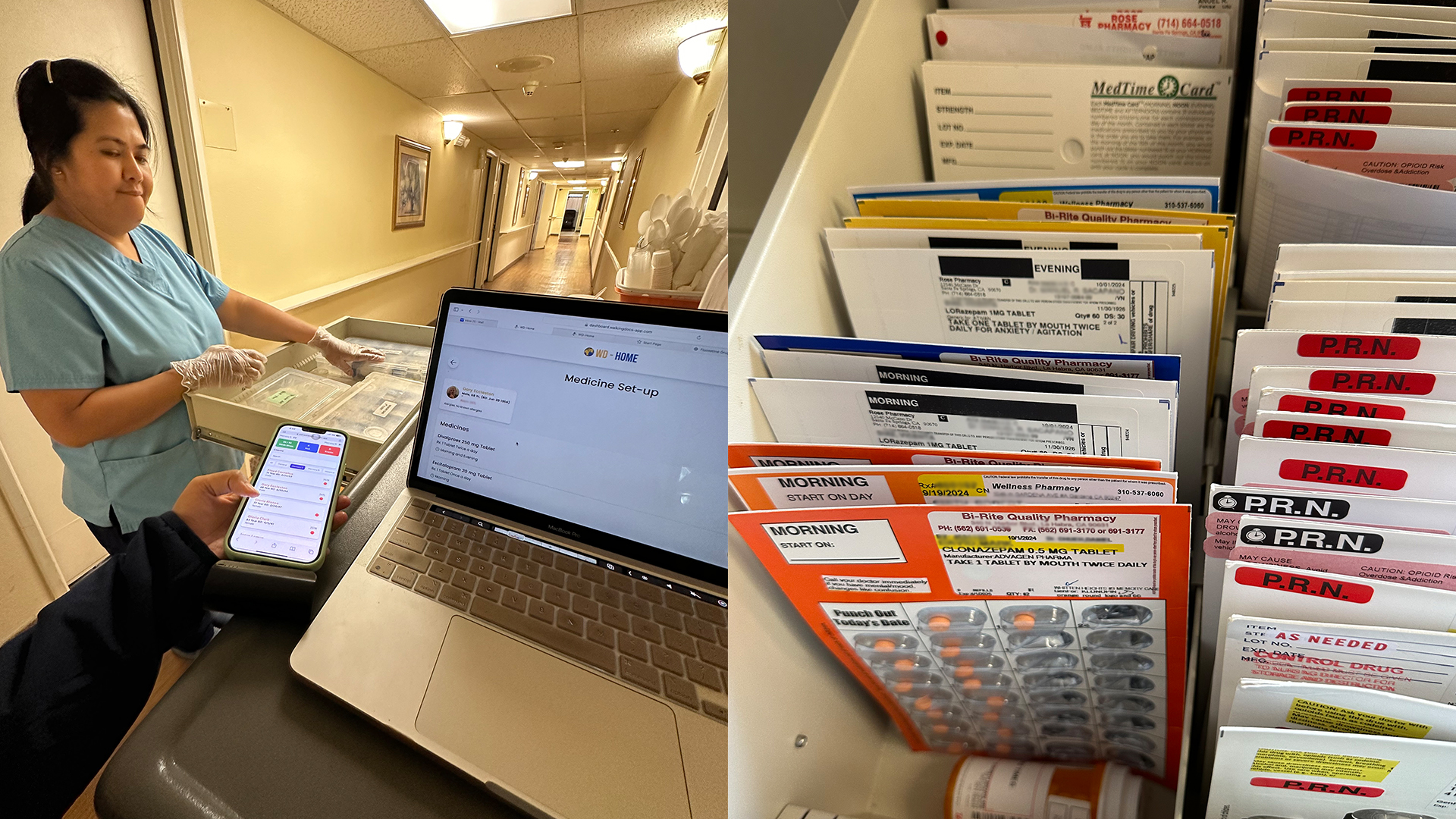
I enjoy translating concepts into real-world work, and as caregivers worked with the app I helped them get comfortable and made adjustments to better suit their needs. Success lies in the ability to monitor and adapt in real-time, rather than focusing solely on large institutional goals. I’ve come to believe that making small but steady improvements can have a lasting impact, and pivoting quickly based on lessons learned is essential.
Working in older person care has completely reshaped my perspective as a student. Not only am I learning about health systems management, entrepreneurship and public health from a fresh angle, but I’ve also come to appreciate the dedication of caregivers and everyday individuals—not doctors— who are improving older persons’ lives.
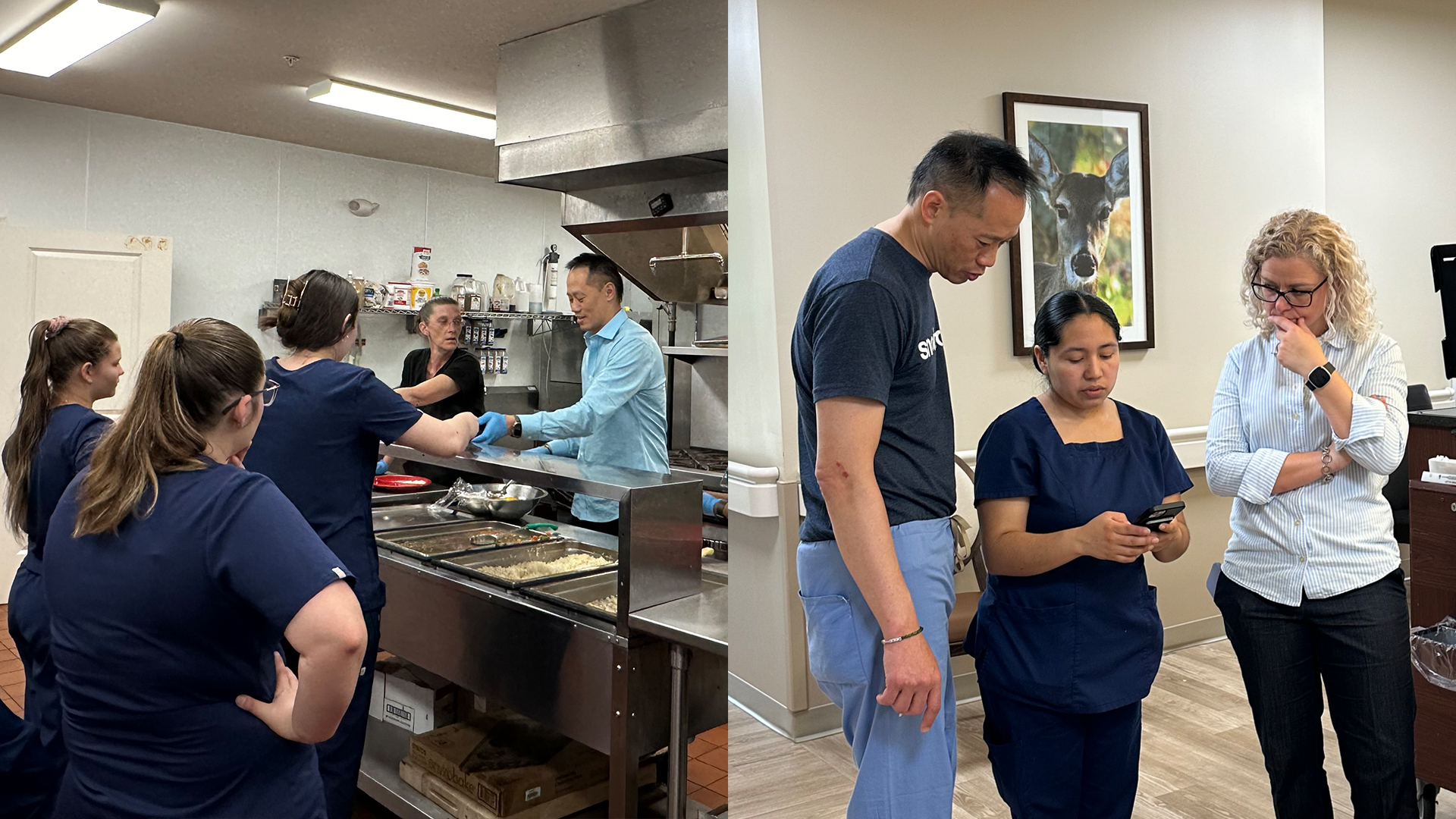
Traveling has been a highlight of these projects; every place we visit offers a different perspective shaped by its social and cultural context. I’ve been particularly moved by the residents I’ve met, many of whom are in their 80s and 90s. They are former Air Force pilots, war veterans, dancers and chefs; many of them are living with partial or severe dementia. One resident, now 99, shared with me a vivid memory from her youth, when she served as a nurse during the war:
“Young lady,” she said, “If you look outside, you’ll see a barn. During the war, that barn held rows of gray metal barricades, built as shelters to protect us. We’d hear the loud, terrifying sounds, and I remember being young and scared, waiting for the silence to return.” Her eyes grew misty as she spoke. “We lived through those hard times so that you could have a better life. Now it’s your turn to make this a better world.” Soon after sharing this incredible moment of time travel and wisdom, she wouldn’t recognize me again. But her words stayed with me, a vivid reminder of our responsibility to honor those who paved the way by creating a better world.
It dawned on me then that my role as a public health professional is simple: to help provide quality care and to advocate for health equity, ensuring that it’s as essential as the air we breathe. In these moments, I feel a renewed sense of purpose, recognizing that the least we can do is support and bring joy to individuals in their final years.
I encourage young people to consider working in older adult care; they can be powerful change agents giving a voice to people who are often overlooked by society. It’s gratifying to bridge gaps and confront generational challenges, while appreciating the world these individuals helped build for us. And observing their lived experiences can help us understand how to reshape and unlearn some cultural patterns.
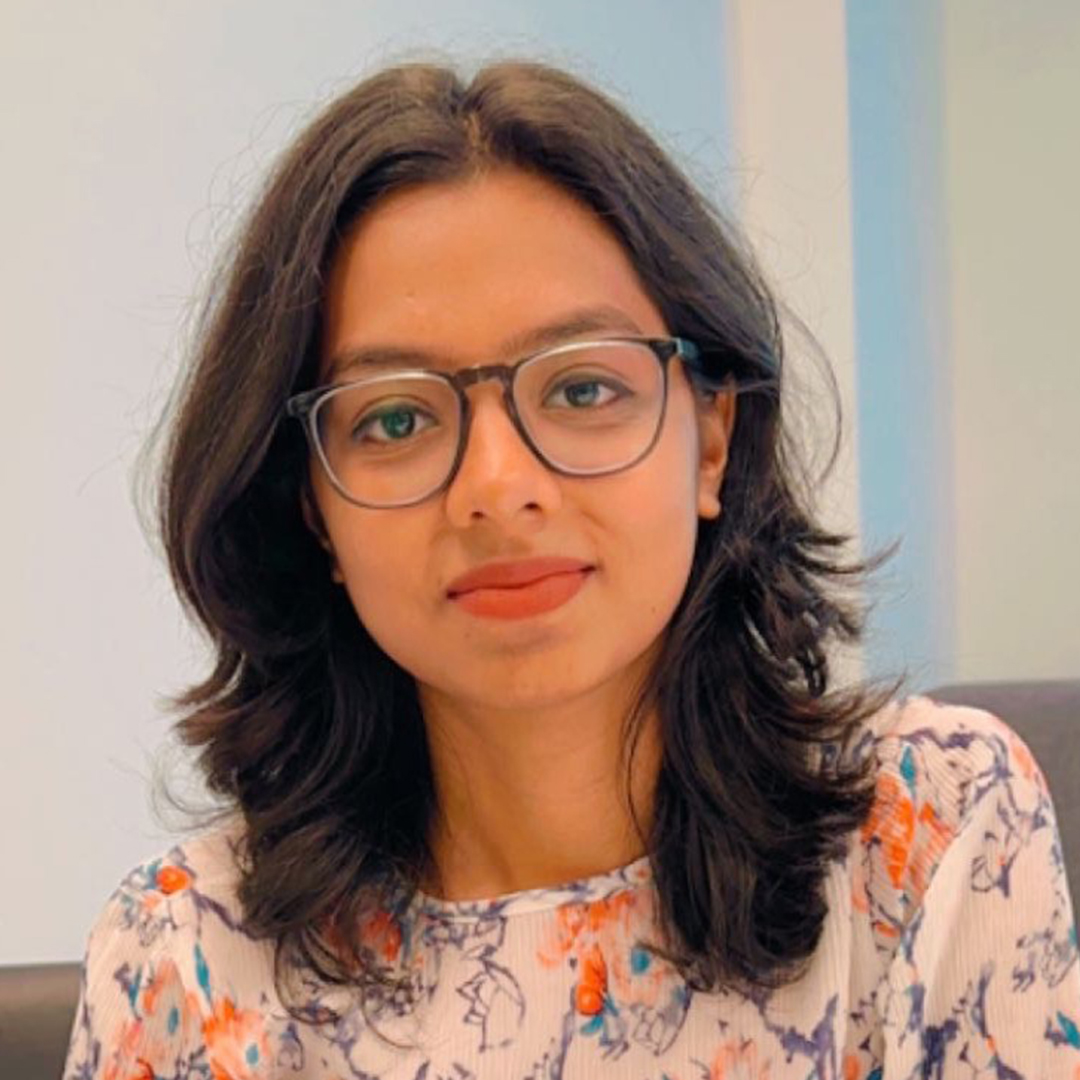
Rimsha Minhaz, BDS
MPH-Global Health Student